Julianna Carlson-van Kleef | 07/02/2022
Freelancers and word-of-mouth software sales
In this ever-increasing digital world, word-of-mouth is still of great importance to businesses and constantly taking on new forms.
In our recent report, The Freelance Channel – A Growing Reseller Resource, we found that of the 298 American freelancers surveyed, word of mouth still leads as the number one way freelancers get new leads, with 65% of freelancers using this channel.
Semrush writes that a nearly identical percentage (64%) of marketers agree that word-of-mouth is the most effective form of marketing; and that a common strategy of creating word-of-mouth campaigns is to find brand advocates who will actively promote a product/service to their networks.
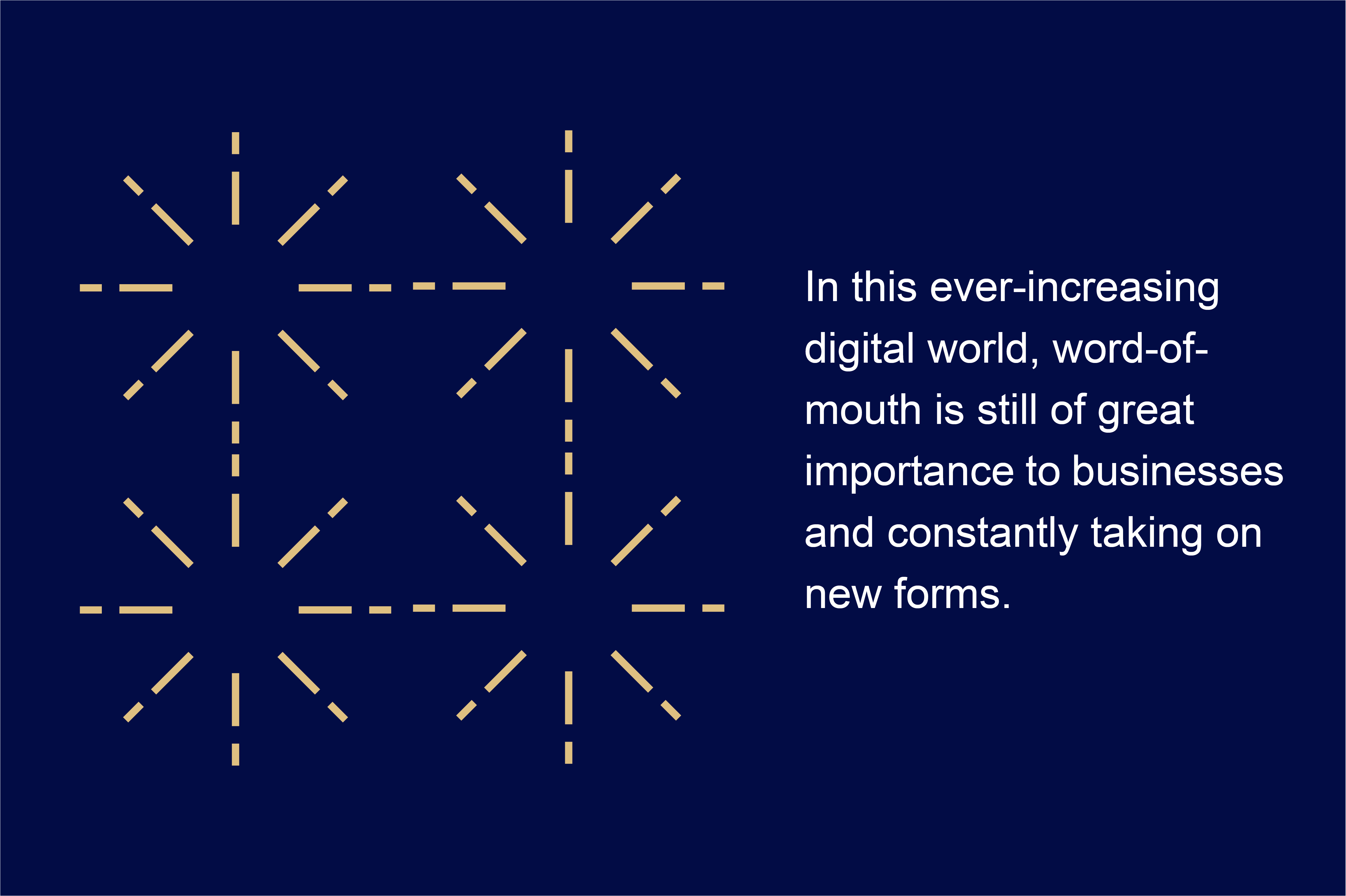
Call them what you will: Software evangelists, influencers, bloggers, etc. - Semrush notes that word-of-mouth counts as one of the top traffic sources for SMEs that do affiliate marketing.
So, what is affiliate marketing? Simply put, it is the marketing and selling of a company’s products and/or services via a vast network of outsourced contacts or associates, who then, in turn, provide a desirable target audience for a commission of the sales.
Another iteration of word-of-mouth sales is software reselling. As Jasmine Jenkins describes in SaaS Reseller Partnerships: What They Are & How They Work: “Resellers often have access to an existing customer base or specific audience that other SaaS companies want to reach. SaaS companies use resellers to explore new verticals, enter regional or global markets, and/or acquire new customers or user bases — all of which are growth levers for driving revenue.”
But just how big is the word-of-mouth opportunity for companies? Semrush notes that “When buying business software, 46% of small businesses choose based on colleagues’ recommendations and other companies in the industry.” This can place freelancers in an enviable position between their own SME customers and the products and software they use to fulfil their client work.
How so? HubSpot notes that one of the biggest challenges salespeople face today is getting in touch with prospects (37%). In another blog post, HubSpot recommends that sales conversations focus on the value that can be delivered (96% say this impacts the purchasing decision), collaboration (93%), providing industry/market insights to give them a new perspective (925), and help buyers better understand their needs (92%). Freelancers who are providing their expertise to individual projects have existing relationships with other SMEs, know the software or products that SME may need to fulfil projects and ease processes in the future, and can provide first-hand information on using the software themselves – providing a personalized sales experience.
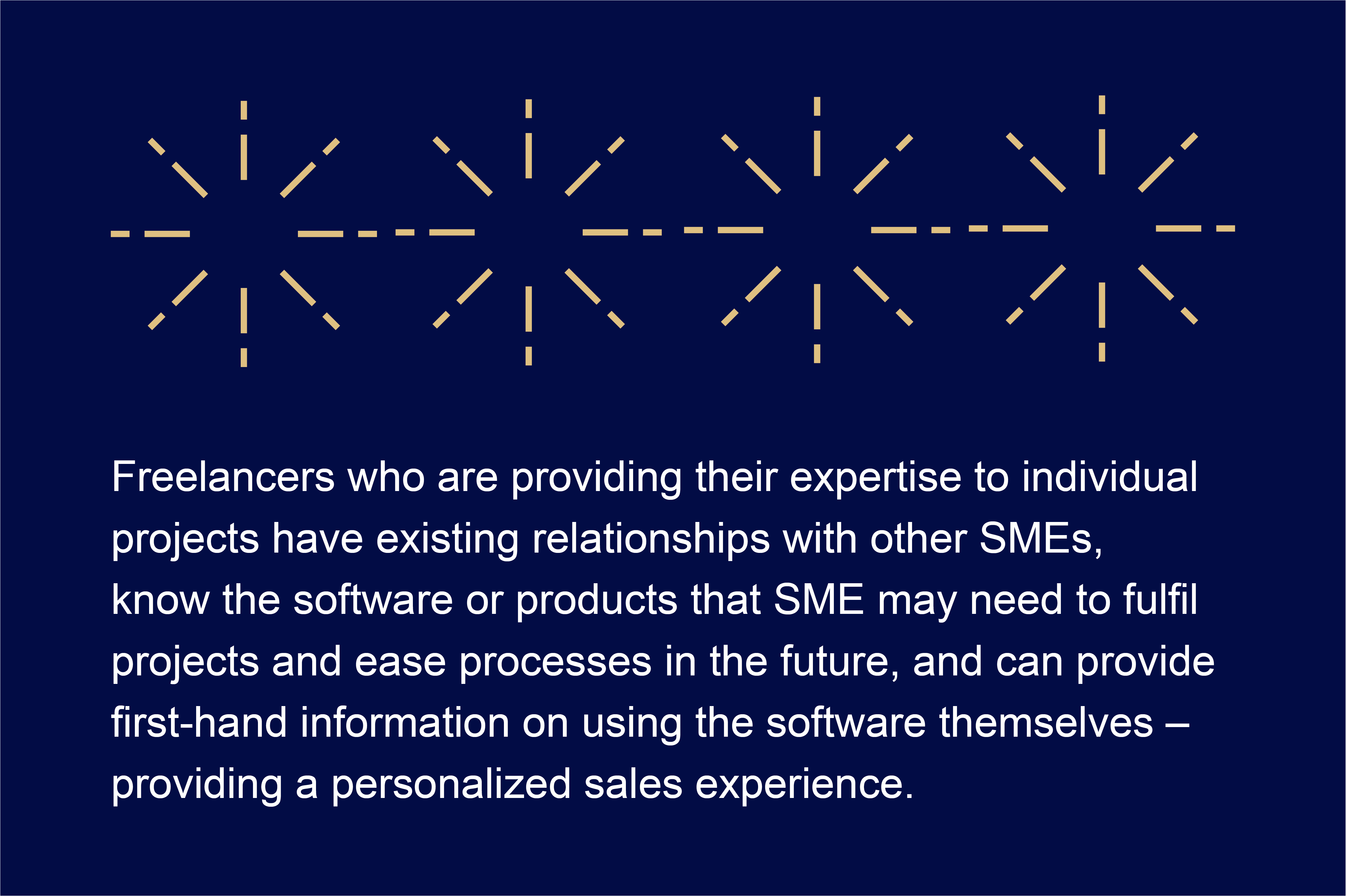
Furthermore, the Forbes article Why Referrals Are The Most Valuable Form Of Marketing (And How To Get More) details two types of referrals: a referral from a customer to someone in their field or outside of their field. Freelancers can easily cover both types of referrals due to their diverse networks of freelancers and SME business clients both in and out of their field.
And since 92% of consumers trust referrals from people they know, this under-utilized avenue of freelancers working with software companies should be explored.
We see that outsourced brand advocacy can benefit a company’s overall sales. But how willing are freelancers to explore this avenue?
U.S. freelancers: Independent brand advocates?
To explore the relationship between freelancers and brand advocacy in the U.S. market, 298 full-time freelancers in the U.S. were surveyed in November 2021. The report, The Freelance Channel – A Digital Reseller Resource was published by Localogy and Mono Solutions in January 2022. This report serves as a companion report to our European study from May 2021: Are freelancers the long-tail channel of the future?

In addition to taking a closer look at the freelancer landscape and the marketing methods freelancers use to generate leads, the reports detail how satisfied freelancers are with software used, which types of software freelancers recommend and sell to clients, factors that would improve the reseller partnership, and reasons for not reselling software. While Americans and Europeans are similar in many regards, their relationship to software had some notable differences.
From recommendations to sales
From our research, freelancers recommend software to a greater extent than they sell software. Nearly the same percentage of American freelancers (63%) recommended software as their European counterparts (62%). Yet, there is quite a disparity between Americans and European freelancers in the types of software recommended.
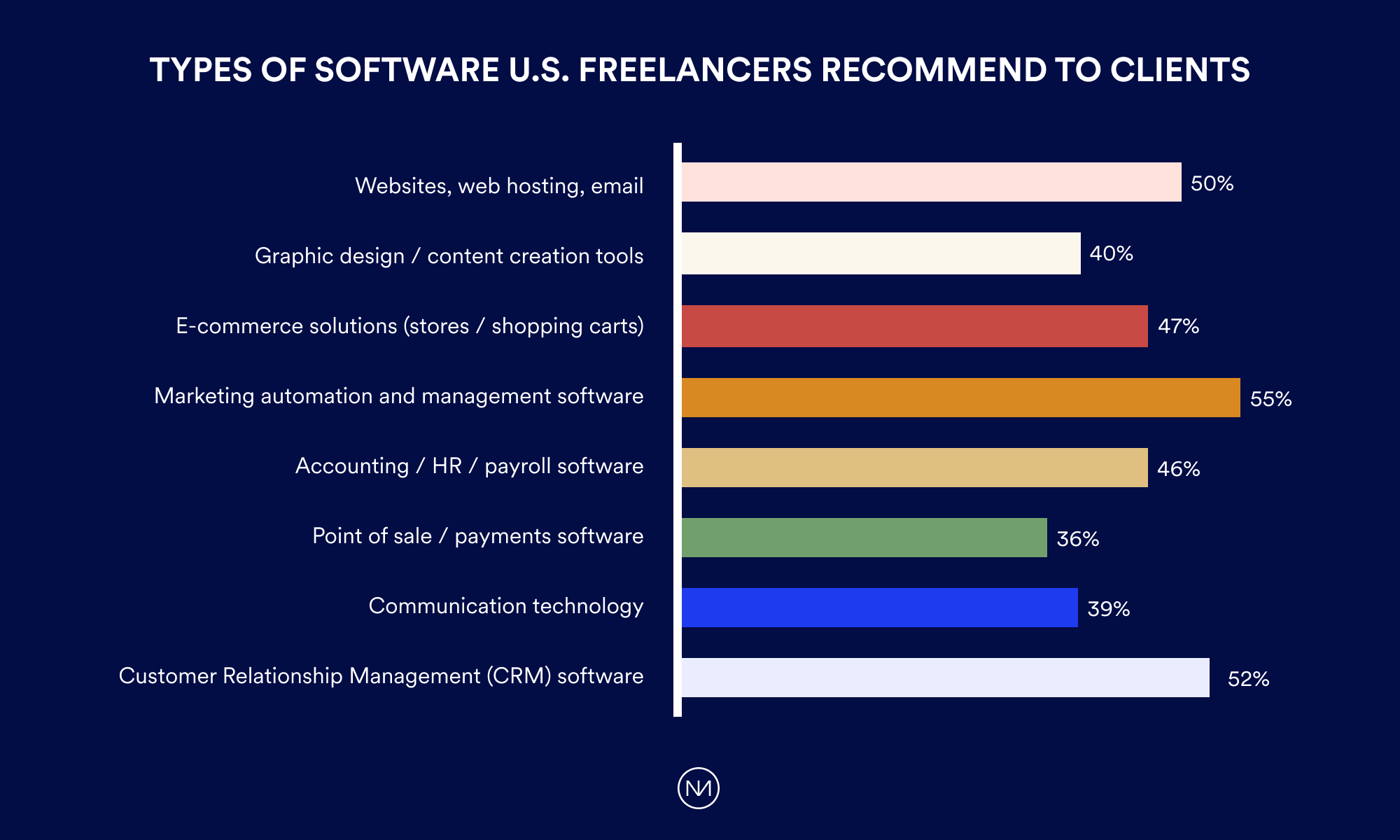
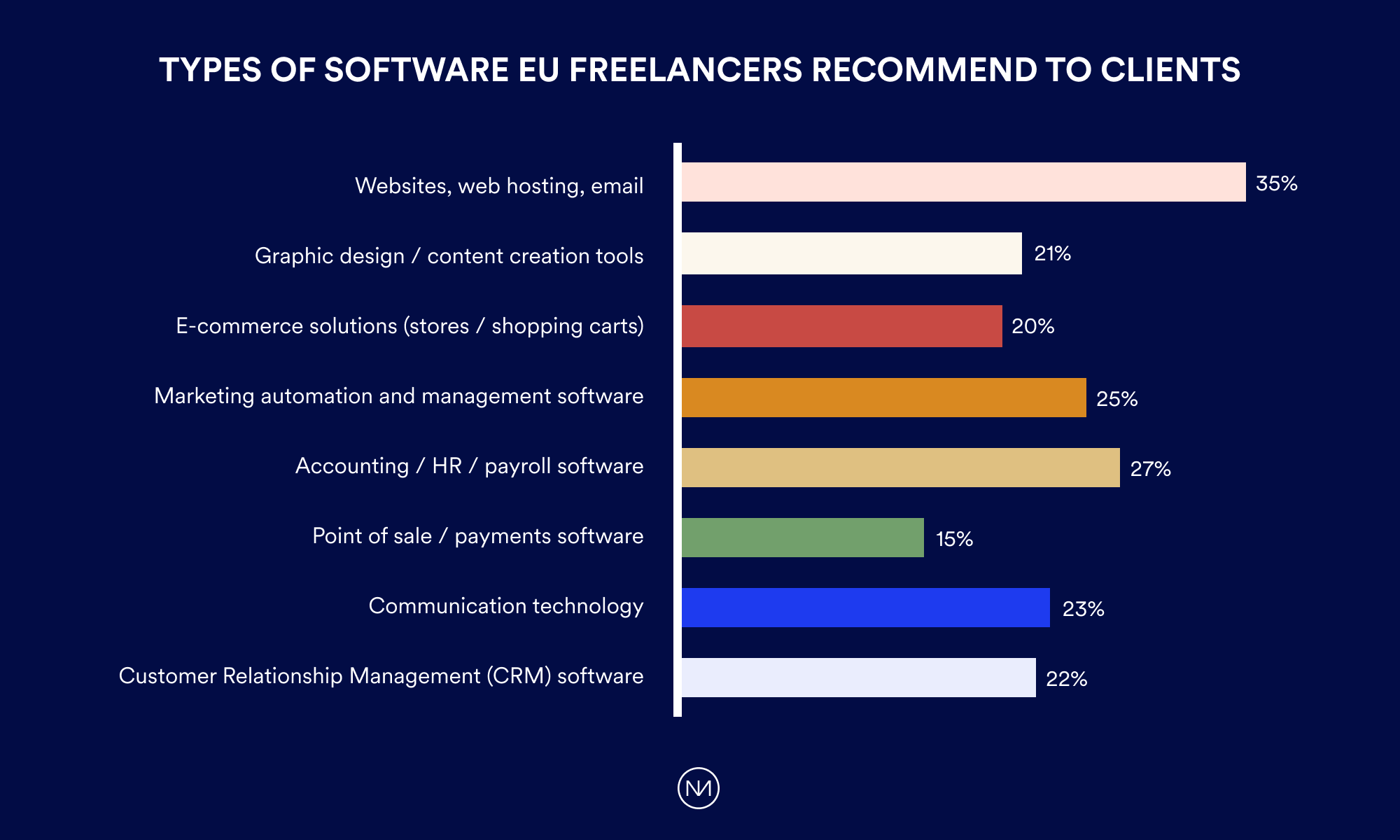
Generally, U.S. freelancers recommended software more across the board, ranging from the lowest percentage of freelancers (36%) recommending point of sale (P.O.S.) software to the highest percentage (55%) recommending marketing automation and campaign management software. In comparison, P.O.S. software also had the lowest percentage of EU freelancers recommending it (15%), whereas websites, hosting and email was the software type which had the highest percentage of EU freelancers recommending it (35%).
It is not only in terms of the amount of recommendations that Europeans are lagging behind their American counterparts – Europeans are also trailing when it comes to selling software to clients, with only 16% reporting to have done this.

On the other hand, Americans are utilizing this source of income more with 29% responding that they have sold software.

Interestingly, the disparity between Americans and Europeans was also found in the type of software sold. Almost half (49%) of European freelancers reported selling website, web hosting, and email software. On the other hand, in terms of graphic design and marketing automation software, a mere 2% of EU freelancers reported selling these software types.
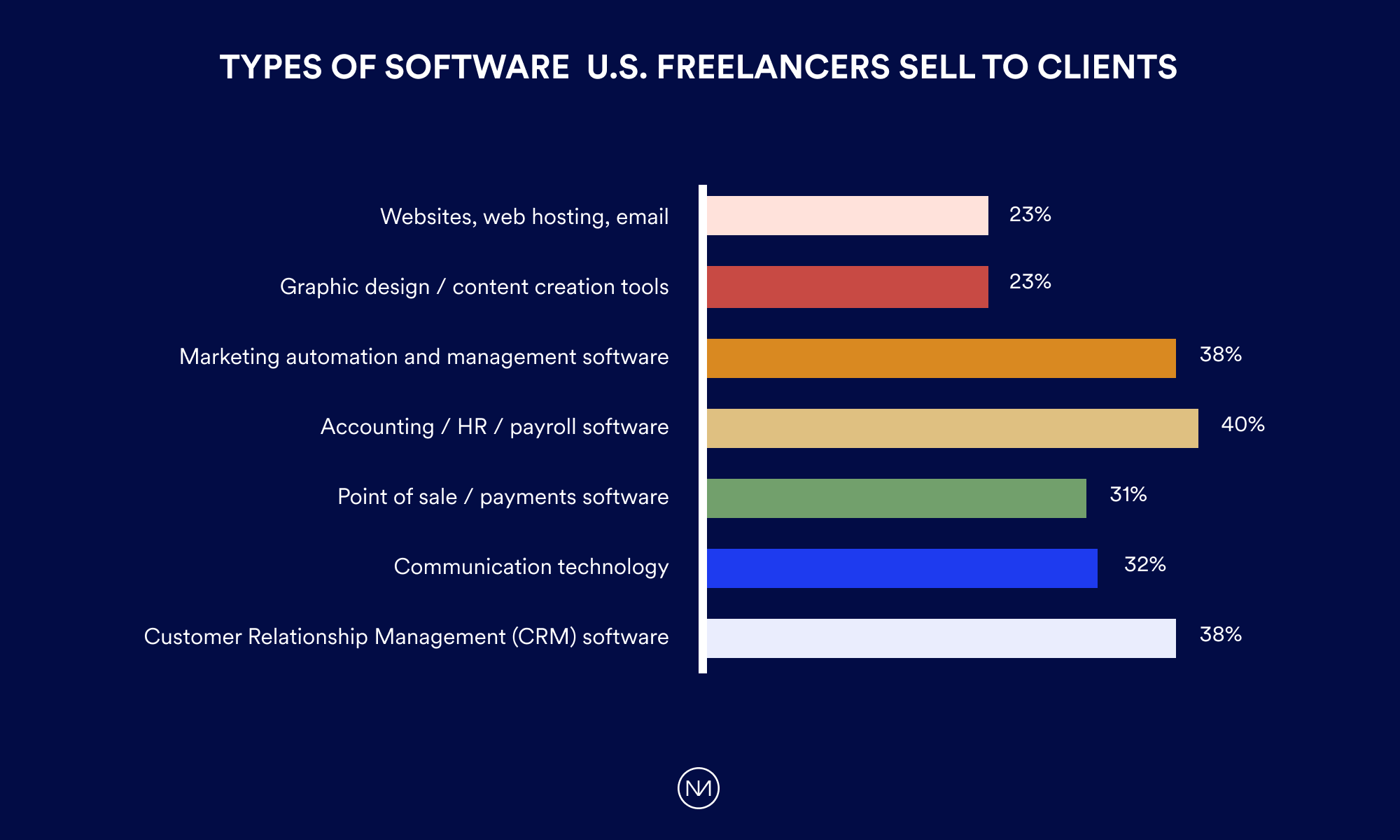
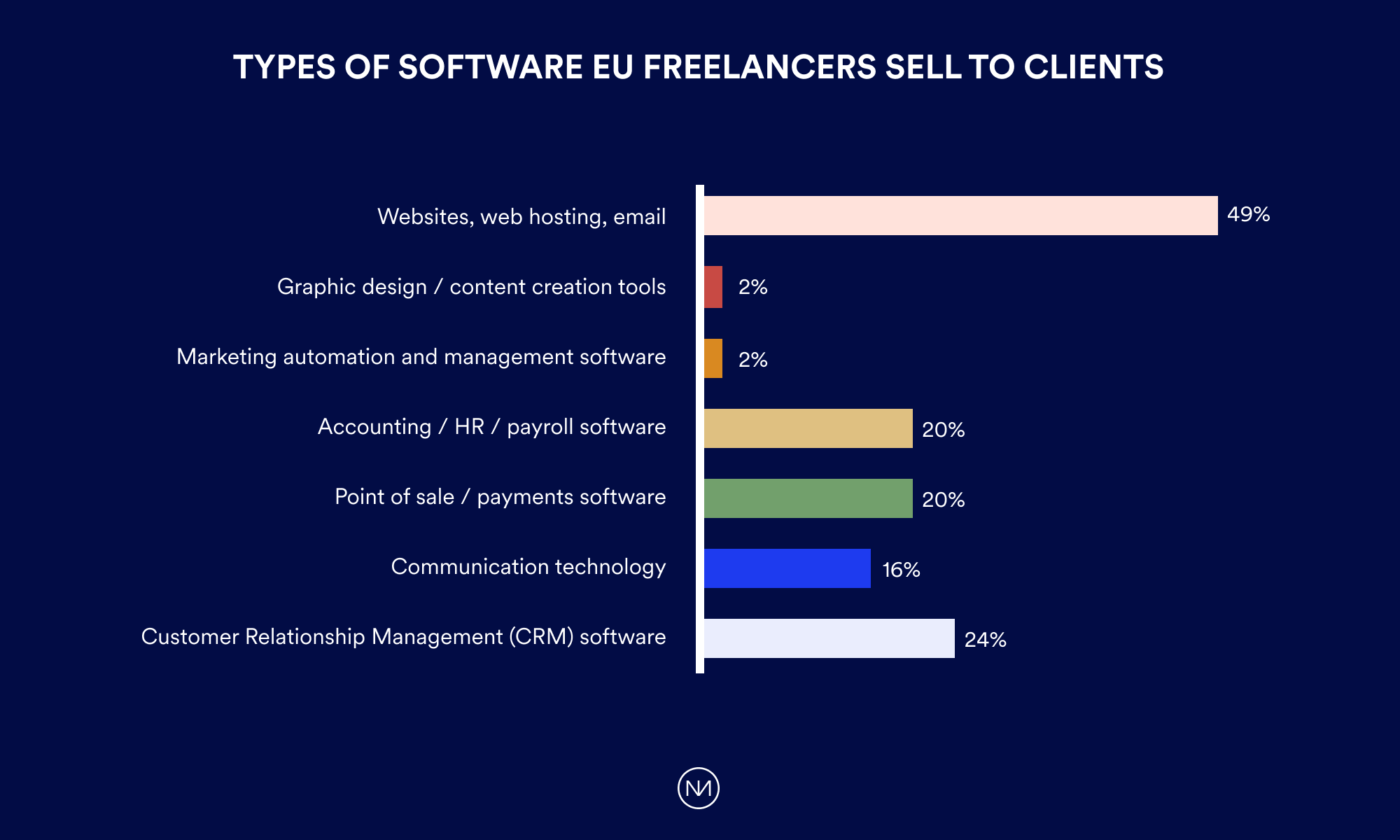
A much higher percentage of U.S. freelancers sold graphic design and marketing automation software, at 23% and 38%, respectively. Generally, a higher percentage of Americans than their European counterparts sold the different software types across the board – except for website software.
So, what does this mean for you?
If you are a current or soon-to-be freelancer and are interested in the possibility of reselling software (or affiliate marketing), you can see which types of software are resold most and which may provide new avenues of interest.
If you are a digital reseller, then this report is a great asset to help you understand the relationship between freelancers, software, and their SME customers. And if you work with both American and European markets, you can gain great insight into similarities and differences through both freelancer reports.
